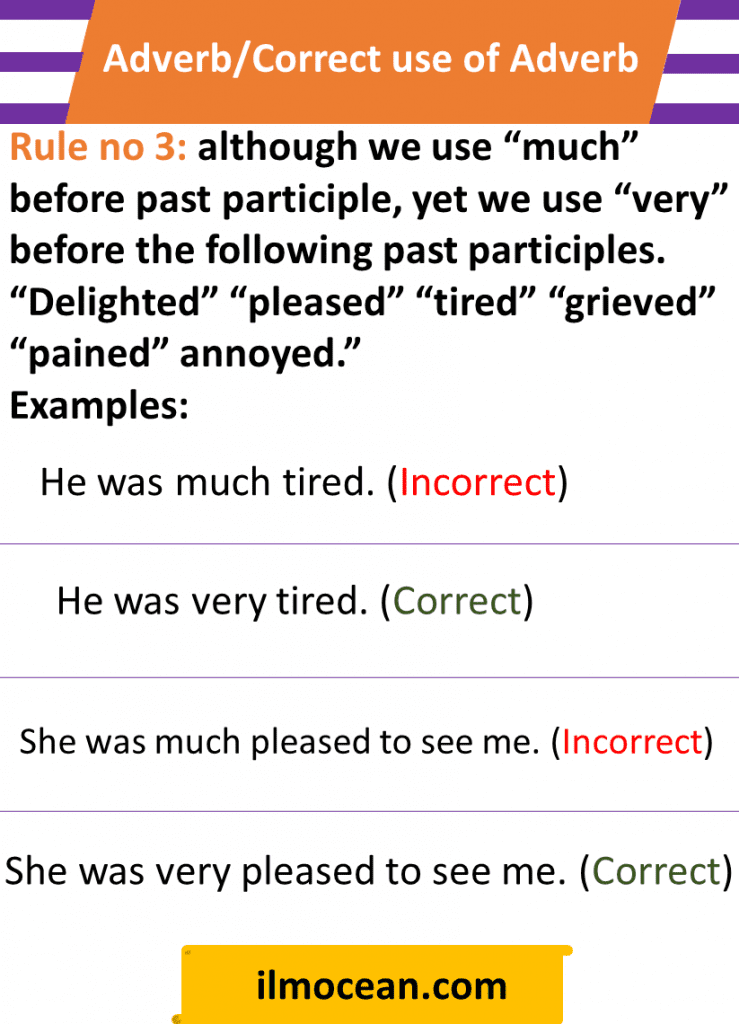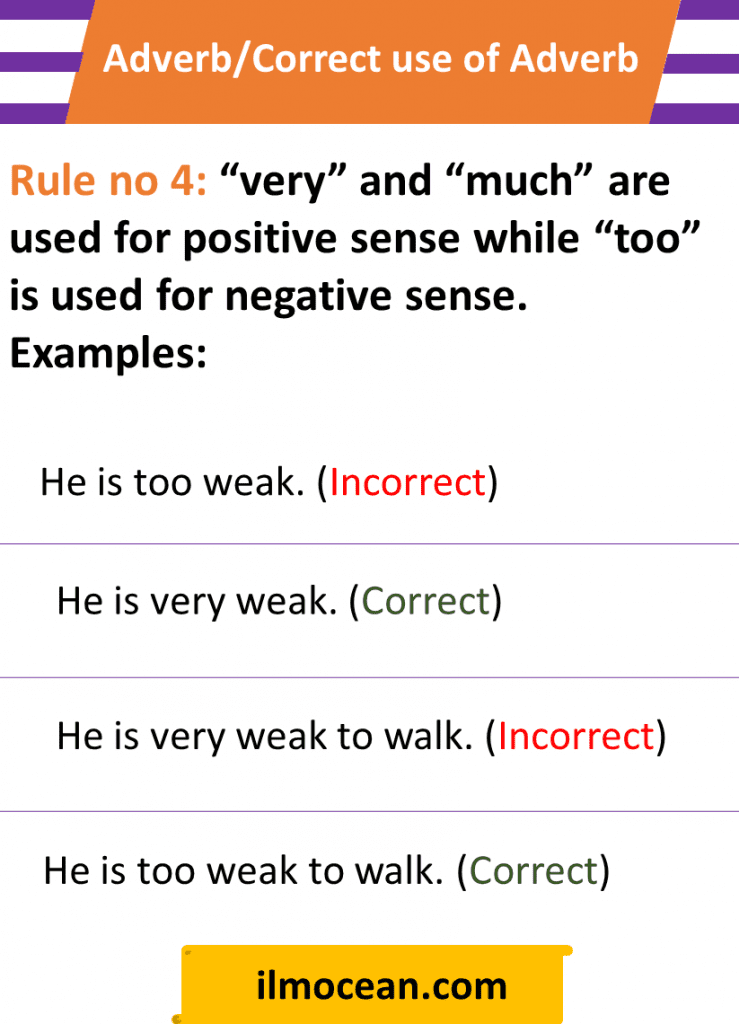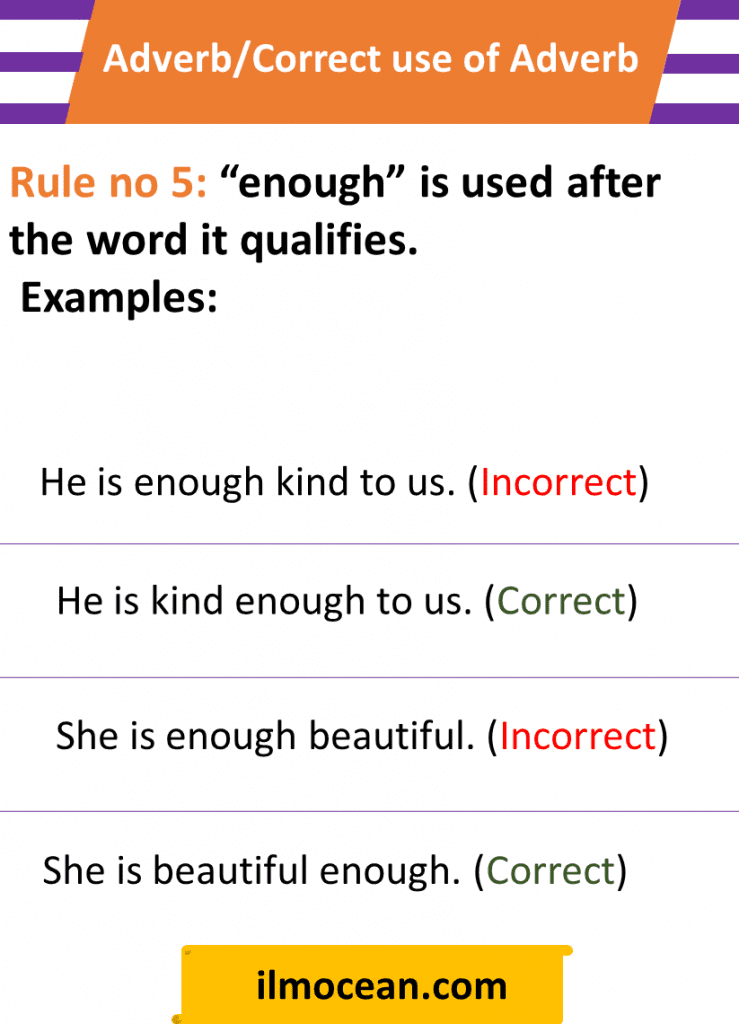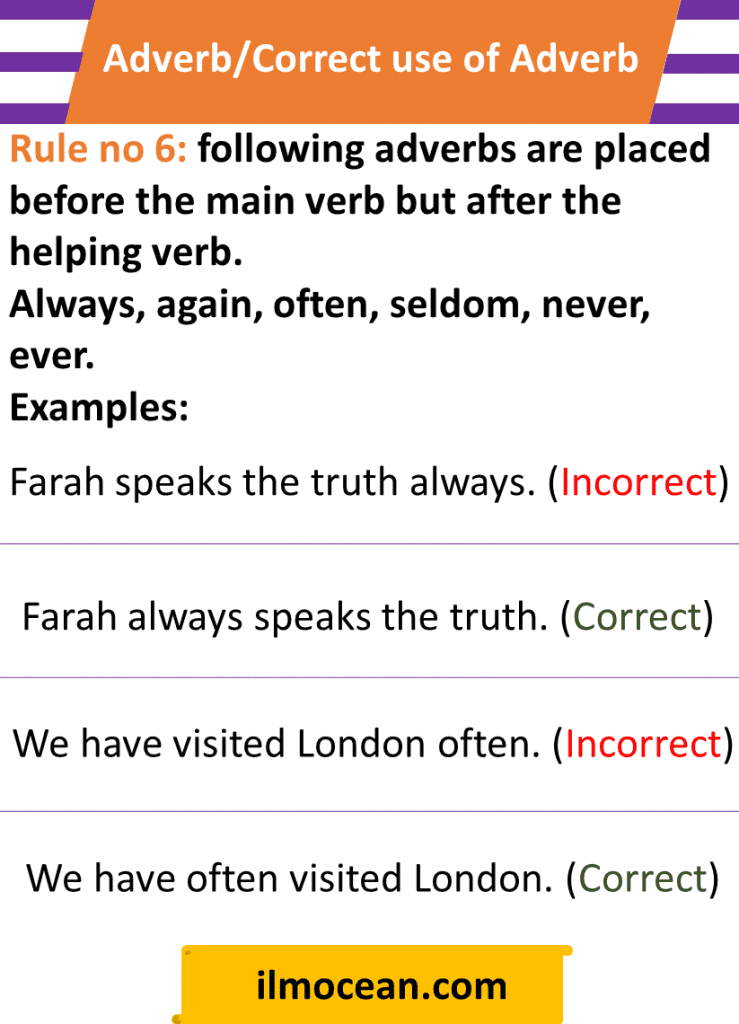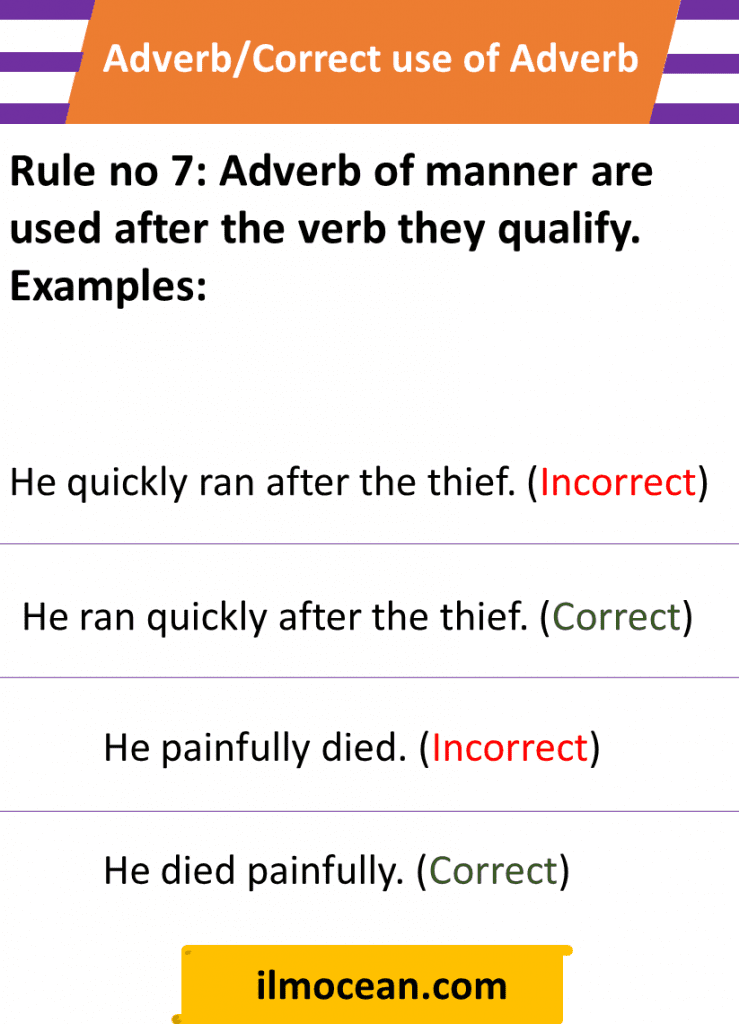Adverb/ Correct use of Adverb
Adverb is used to modify or to explain a verb, adjective and adverb also. Normally adverbs express place, manner, time, frequency, degree, certainty level etc. Adverbs are very important parts of modern day language. Adverbs are of many kinds but five types are very common. These types are:
- Adverb of manner
Adverb of manner tells us the way something was carried out. Mostly it comes to modify verbs. Mostly these adverbs are used by adding “ly” after a verb.
Example:
He cleared the hurdles easily.
- Adverb of time
This adverb is about the intensity of a verb. How much or to what extant something happened. Usually it comes before the verb it modify. But in some sentences it come after the verb. Example:
This food is hardly sufficient for them.
His lecture was interesting enough to keep my attention.
- Adverb of place
It tells us about the place were some action (verb) occurs. Do not mix it with prepositions which are used to describe the position of a noun.
Example:
In India, there are mud houses everywhere. (Where are these houses?)
It is time for dinner, please come inside. (Where should I go?)
- Adverb of frequency
It tells us that how often an event occurs. Simply it gives number of an incident happened.
Example:
I always recite Holy Quran before bed. (How many times?)
- Adverb of degree
It is clear from the name that it tells us when a verb took place. These adverbs usually comes at beginning or at the end of a sentences.
Example:
The evening newspaper arrived later.
With these types we are in a position to explain verbs properly and in an easy way.
Rule no 1: we use “very” before the positive degree of adverb and we use “much” before the comparative degree of adverb.
Examples:
He is much happier today. (Incorrect)
He is very happy today. (Correct)
He is very happier today. (Incorrect)
He is much happier today. (Correct)
Rule no 2: we use “very” before present participle and we use “much” before past participle.
Note: when we use verb+ing as an adjective it is called present participle. When we use 3rd form of verb as an adjective it is called past participle.
Examples:
It is much surprising news. (Incorrect)
It is very surprising news. (Correct)
1 was very surprised to see her. (Incorrect)
I was much surprised to see her. (Correct)
Rule no 3: although we use “much” before past participle, yet we use “very” before the following past participles.
“Delighted” “pleased” “tired” “grieved” “pained” annoyed.”
Examples:
He was much tired. (Incorrect)
He was very tired. (Correct)
She was much pleased to see me. (Incorrect)
She was very pleased to see me. (Correct)
Rule no 4: “very” and “much” are used for positive sense while “too” is used for negative sense.
Examples:
He is too weak. (Incorrect)
He is very weak. (Correct)
He is very weak to walk. (Incorrect)
He is too weak to walk. (Correct)
It is very hot to play. (Incorrect)
It is too hot to play. (Correct)
Rule no 5: “enough” is used after the word it qualifies.
Examples:
He is enough kind to us. (Incorrect)
He is kind enough to us. (Correct)
She is enough beautiful. (Incorrect)
She is beautiful enough. (Correct)
Rule no 6: following adverbs are placed before the main verb but after the helping verb.
Always, again, often, seldom, never, ever.
Examples:
Farah speaks the truth always. (Incorrect)
Farah always speaks the truth. (Correct)
We have visited London often. (Incorrect)
We have often visited London. (Correct)
Rule no 7: Adverb of manner are used after the verb they qualify.
Examples:
He quickly ran after the thief. (Incorrect)
He ran quickly after the thief. (Correct)
He painfully died. (Incorrect)
He died painfully. (Correct)
Some common errors and their correction for practice
After discussing the rules for correction of errors regarding to adverb and common mistakes we commit while using adverb and their correction method now we will practice some common errors and their correction.
Red color shows the incorrect sentences.
Green color shows the correct sentences.
| He is enough rich to buy this house. | He is rich enough to buy this house. |
| I go to see my friend often. | I often go to see my friend. |
| This scenery is too charming. | This scenery is very charming. |
| He walks very faster than you. | He walks much faster than you. |
| He carefully thought about the matter. | He thought about the matter carefully. |
| This milk is too hot. | This milk is very hot. |
| This milk is very hot to drink. | This milk is very too to drink. |
| He is much rich. | He is very rich. |
| He speaks the truth always, | He always speaks the truth. |
| I am very obliged to him. | I am much obliged to him. |
| I am quiet sorry. | I am very sorry. |
| He is very sad to laugh. | He is too sad to laugh. |
| She came much soon. | She came very soon. |
| He naturally acted the part. | He acted the part naturally. |
| This book is too better than the other. | This book is much better than the other. |
| I am much happy at your success. | I am very happy at your success. |
| I am too astonished at what you tell me. | I am much astonished at what you tell me. |
| I was too pained on hearing this news. | I was very pained on hearing this news. |
| Your pay is enough high for you. | Your pay is high enough for you. |



